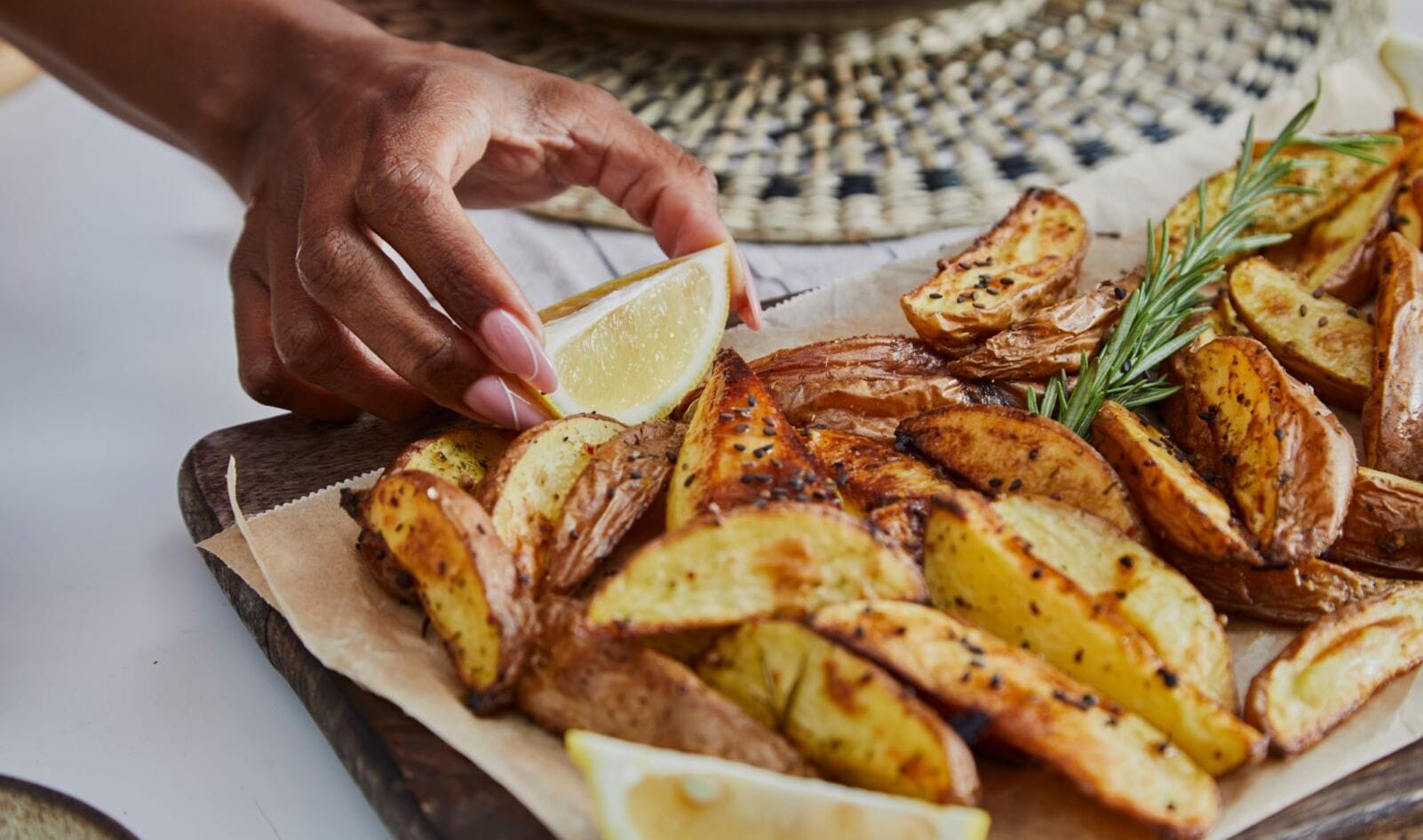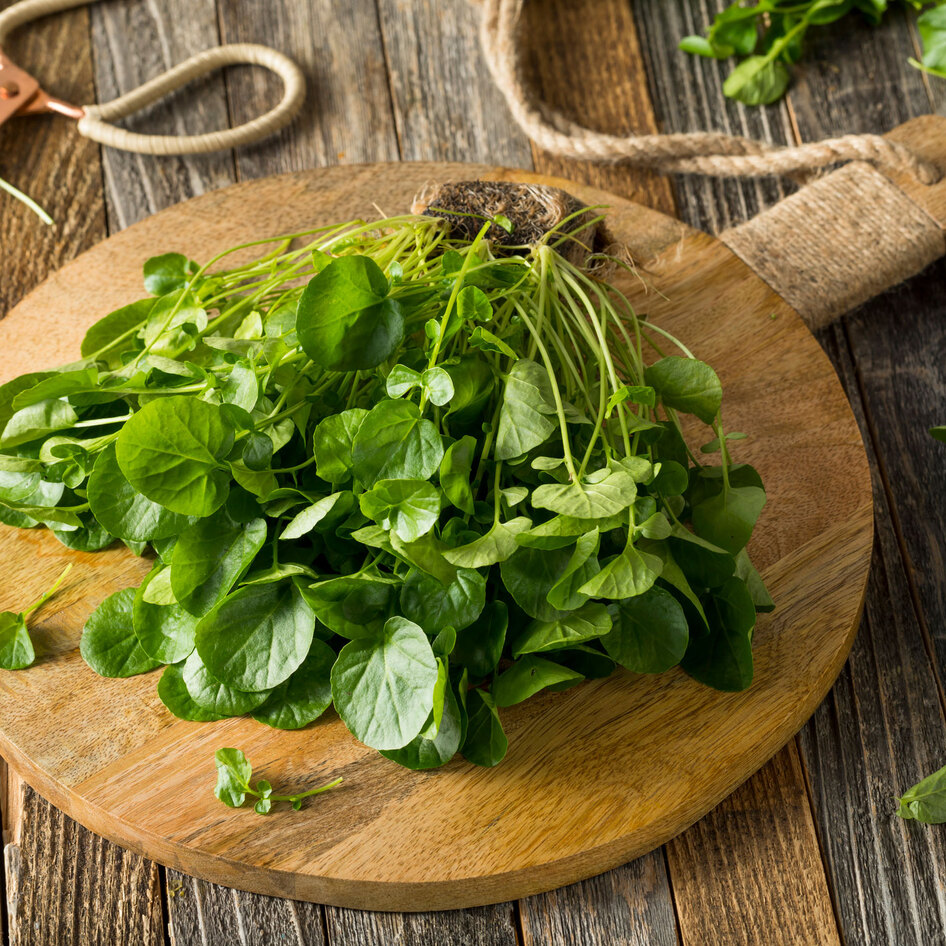As the global threat of climate change continues to jeopardize sustainable food supplies, a new initiative led by scientists from McGill University in Montreal, QC is set to potentially change the future of potatoes.
Professor Martina Strömvik and her team have unveiled a cutting-edge “super potato” pangenome aimed at identifying genetic traits that could usher in the era of the next super spud.
“Our super pangenome sheds light on the potato’s genetic diversity and what kinds of genetic traits could potentially be bred into our modern-day crop to make it better,” Strömvik said in a statement.
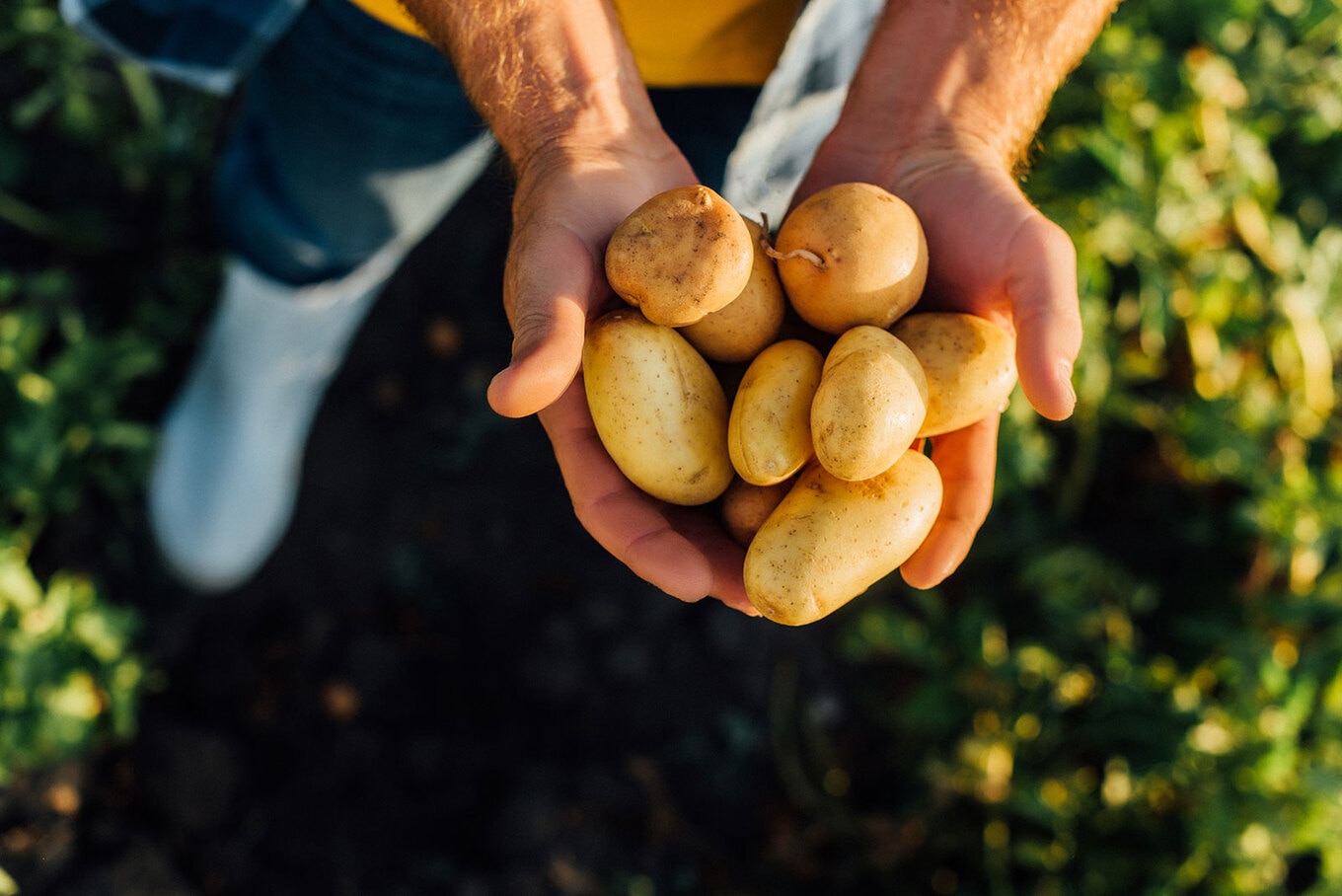 Adobe
Adobe
“It represents 60 species and is the most extensive collection of genome sequence data for the potato and its relatives to date,” Strömvik adds.
A genome, often referred to as an organism’s complete set of genetic instructions, is the foundation of this project. A pangenome seeks to encompass the entire genetic diversity within a species, while a super pangenome ambitiously incorporates multiple species.
Climate-adaptive potatoes
The humble potato is a dietary staple for billions worldwide and plays a pivotal role in the global food supply, ranking only behind rice and wheat in terms of human consumption. Many experts agree that plant-based foods are pivotal in reducing food-related greenhouse gas emissions and adapting to more sustainable eating practices.
And if a “super potato” is developed that is climate-adaptive and more nutritious, it would be a huge step forward in improving the world’s food security.
“Wild potato species can teach us a lot about what genetic traits are critical in adapting to climate change and extreme weather, enhancing nutritional quality, and improving food security,” Strömvik says.
To construct the potato pangenome, the research team harnessed the power of supercomputers, meticulously analyzing data from public data banks, including gene banks in Canada, the United States, and Peru.
According to the researchers, the pangenome has the potential to answer profound questions about the evolution of this vital crop, which was domesticated by Indigenous peoples in the mountains of southern Peru nearly 10,000 years ago. It could also serve as a valuable resource in identifying specific genes for creating a super spud through traditional breeding methods or advanced gene editing technology.
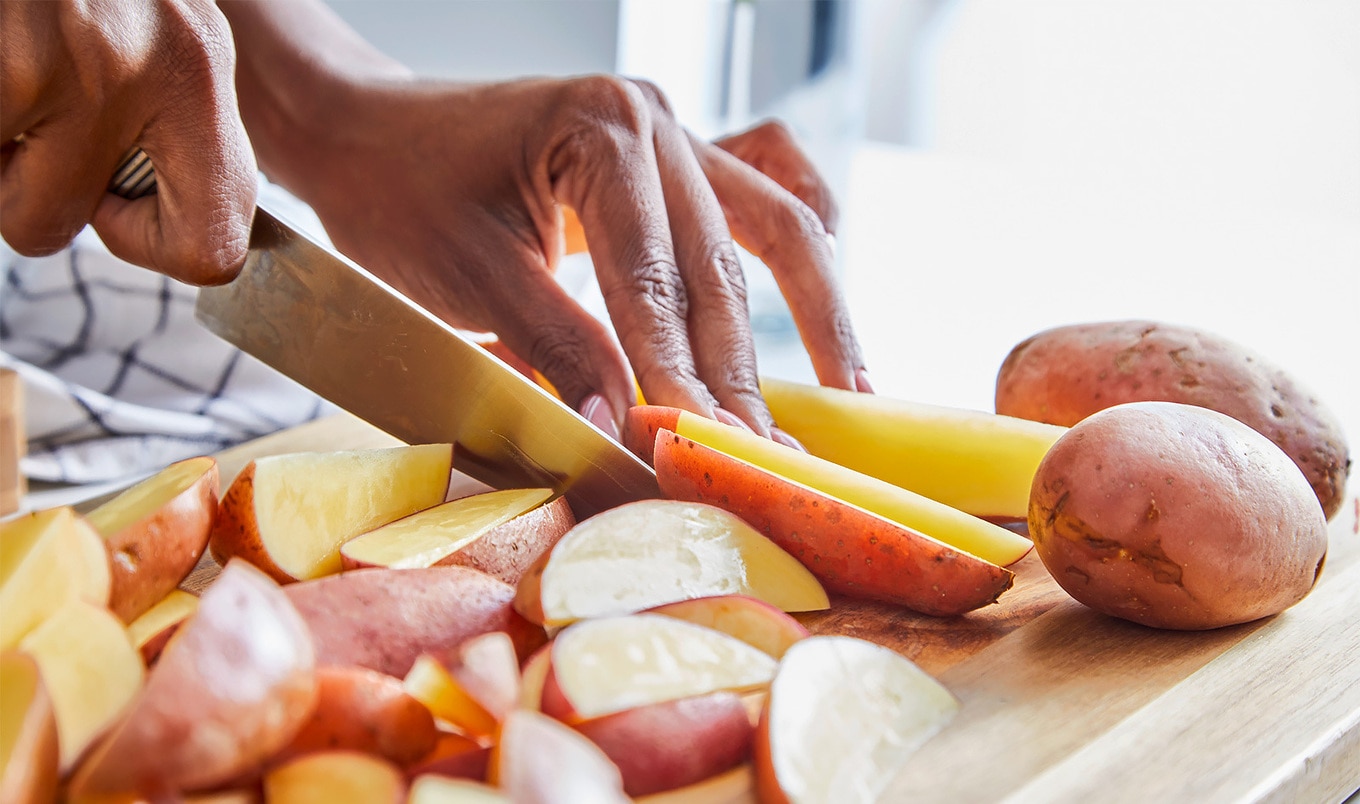 Getty
Getty
“Scientists hope to develop something that can defend against various forms of diseases and better withstand extreme weather like excessive rain, frost, or drought,” Strömvik emphasizes.
Can potatoes save the world?
The unveiling of the potato super pangenome represents a monumental leap forward in the quest for climate-resilient and nutritionally enhanced potatoes, offering a glimmer of hope for ensuring sustainable food supplies in an increasingly challenging world.
“Potatoes are an important food crop for humans for several reasons, especially nutrition,” Noah Praamsma, MS, RDN, Nutrition Education Coordinator for the Physicians Committee for Responsible Medicine, tells VegNews.
Despite sometimes being seen as a food to avoid, potatoes are actually a great source of carbohydrates. “Carbohydrates come in the form of starch, which releases energy at a steady rate and is good for gut health, as well as fiber, which helps keep you feeling full and supports heart health,” Praamsma says.
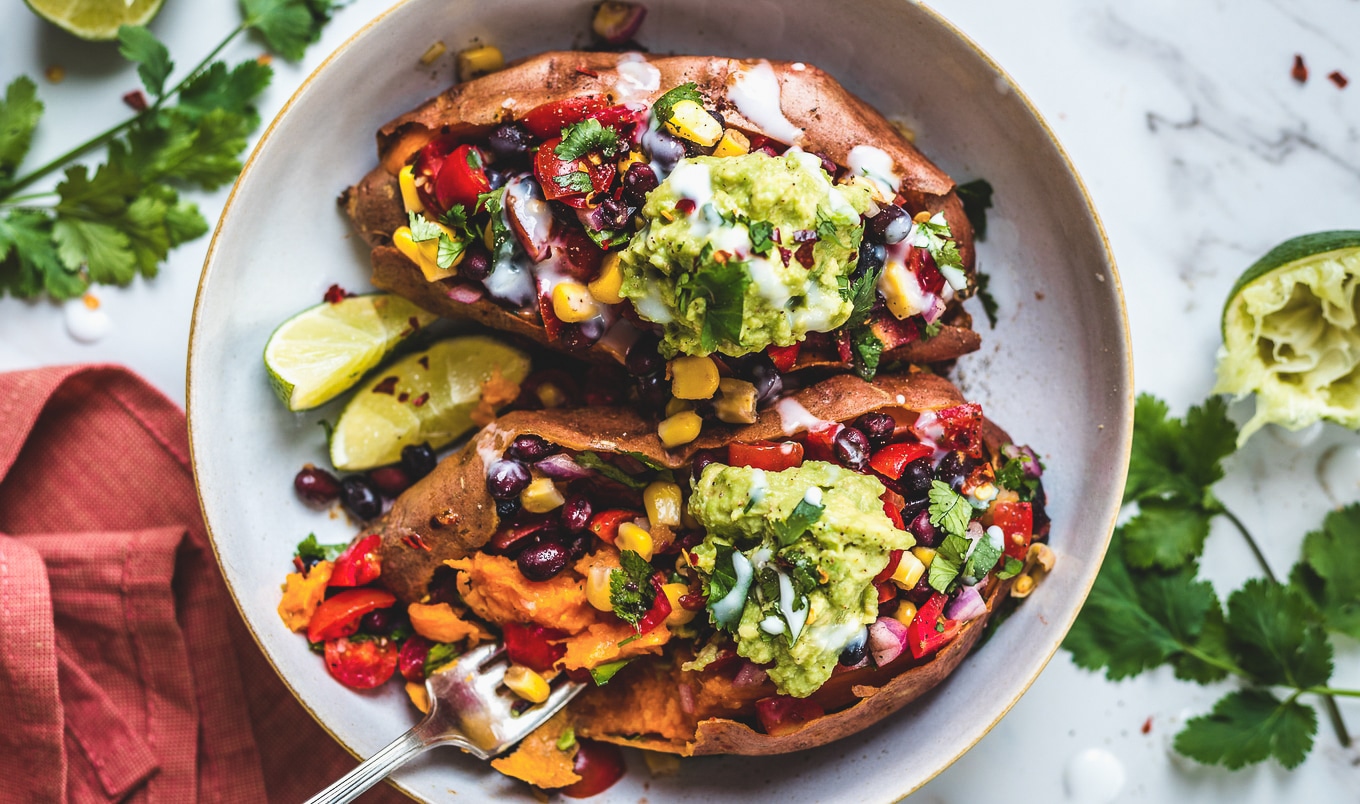
“Potatoes also contain many micronutrients, like vitamin C and potassium. Sweet potatoes are rich in vitamin A and great for eye and immune system health, and potatoes that come in different colors (like purple potatoes) are especially high in antioxidants,” Praamsma adds.
In addition to their nutritional value, potatoes can also be grown almost anywhere and can be stored for several months after being harvested.
In previous years, the potato has already been genetically modified to make them easier for us to grow and eat. But if they’re already so great, why make them better?
“These small changes will help more potatoes stay good to sell and eat, reducing food waste, and will prevent carcinogens from forming when potatoes are cooked at high heat,” Praamsma says.
“Other genetic modifications could make potatoes still more nutritious than they already are,” Praamsma adds.
Praamsma points to previous decades, when scientists developed a rice breed that contains vitamin A. “Golden rice was a huge win for the billion or so people worldwide who eat a lot of rice and who suffer from vitamin A deficiency, and similar modifications to potatoes could be in our future.”
For the latest vegan news, read:
JUMP TO ... Latest News | Recipes | Guides | Health | Subscribe

